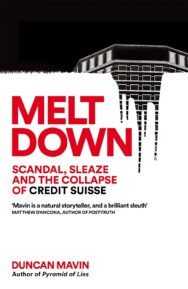German automotive industry at a crossroads
Kategoria: Business
The Occupy Wall Street campaign is now in its 17th day–making it easily the longest political protest of the Global Financial Crisis. Unfortunately, even I wasn’t aware of it when I was in New York two weeks ago, a few days after it started, since it received very little coverage from the media prior to the arrest of about 700 protesters on the Brooklyn Bridge.
Now it’s entrenched, and growing. Whatever its ultimate outcome, it is an important event in this crisis, as the first glimmer of a popular revolt against the Ponzi culture of Wall Street.
It was initiated by the remarkable magazine AdBusters, which for almost a decade now has turned the practices of advertising against advertising. It would have to be the most visually powerful, image-laden magazine on the stands today–and at the same time it is subversive of advertising itself. Having made a splash in the print media, Adbusters has now shown that it can use the new social media to dramatic effect as well.
I’m not going to make any prognostications on how this might pan out, but it is curious that Wall Street is now surrounded on the outside, as it implodes on the inside.


